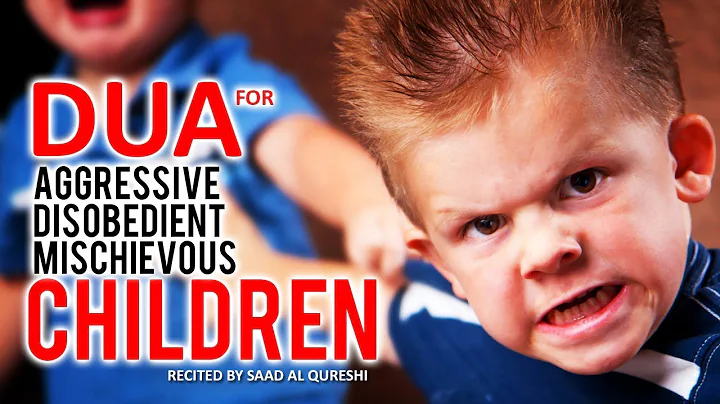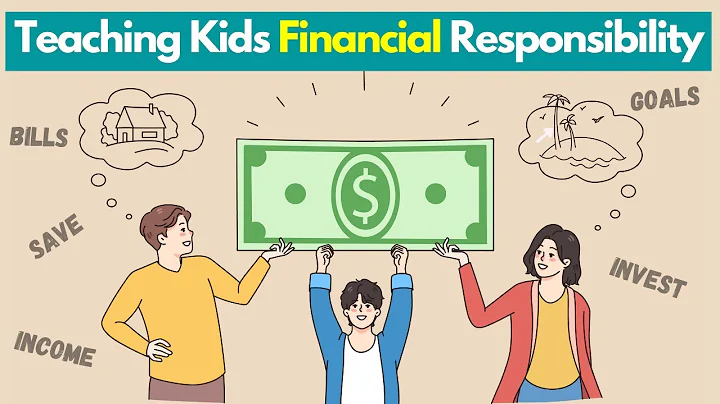东

Author | He Xiaowei
Editor | Zhang Guan
Editor | Tianya Chen Chenchen
I often encounter questions from some parents:
Why are other people’s children so obedient, while my own children are so obedient? Your child always disobeys?
I sometimes throw back another question:
When you were a child, would you be willing to be educated by you now?
Some parents will be confused after hearing this: Does this have anything to do with my child being disobedient? Of course
is related!
There is such a sentence in " the little prince ":
Every adult was once a child, although only a few people remember it.
But in real life, when many parents communicate with their children, they only stand from the perspective of adults and ignore the perspective of children.
What children see is the superior preaching of their parents. They do not feel understood and respected, and instinctively confront adults.
What should we do at this time?
The answer is simple:
Ask your children how to be a good parent;
Use a method acceptable to your children to communicate.

3 essential elements for a good parent-child relationship
Before starting the text, let’s think about a question: Who do children want to listen to most?
The answer is simple: listen to whoever you like. Whether this person's words make sense or not is actually completely unimportant.
What kind of adults do children like?
I remember when I was a child, every time a new semester started, after the new teacher introduced himself, my classmates and I would discuss our views on the teacher -
Scene 1: Teacher A came on stage
You children, you are really a defeated generation. I don't have to worry about food or clothing, and I have the opportunity to study hard, but I just don't cherish it.
Do you know how difficult it was for me to go to school at that time? It’s true that I don’t know how blessed I am! You should look more like our generation.
After class, the students commented:
"This old guy has so much control!"
"He still looks down on us! Does he think he is so great?"
"I guess it won't be long before he will say that he took care of us." The worst student ever! "
Scenario 2: Teacher B comes on stage
I think people of your generation are very thoughtful and often look at things from angles that I didn't expect.
You young people are so energetic! I feel a lot younger when I stay with you, and I can learn a lot.
Classmate discussion after class:
"This teacher feels easier to talk to than the previous one!"
"Do you think the teacher's children will be older than us?"
"I have seen the teacher play badminton before, we can call him next time .”
Needless to say, we all prefer Teacher B.
Because Teacher A’s words emphasized: I am different from you. I immediately drew a clear line with my classmates.
also has a preaching tone, full of voices such as "I am better than you, you are terrible and deserve to be reformed", which can easily arouse children's disgust and hostility.
In contrast, Teacher B’s words express: I am here to grow with you.
Moreover, he also conveyed 3 messages to his children:
1. We are equal;
2. I appreciate you;
3. I am willing to be influenced by you.
These are also the 3 essential elements for a quality relationship.
Equality: can make children less likely to feel inferior and less likely to be conceited.
appreciation: can make children feel affirmed and loved in relationships.
Willing to accept the influence of children: can further encourage children to develop their personality and creativity.
It is conceivable that in the future, even if two teachers teach the same content and assign the same learning tasks in class, students will be more willing to accept Teacher B.
And this also illustrates one point:
Compared with educational content, the relationship between educators and children is more important.
If parents find that talking to their children many times has no effect, then there is a high probability that it is not that you have not made it clear, but that there is a problem with the relationship.
So, what is the problem? How should we solve it?


3 sentences to help you find the breakthrough in the relationship
If you want to know where the problem lies, we might as well try to start from the child's perspective and ask the child the following 3 questions to find the breakthrough in the relationship.
1. "What kind of parent do you think I am?"
When asking this question, we must be mentally prepared.
After hearing the answer, many parents will ask: How can you say this about your parents?
This can easily be interpreted by children as "In front of parents, I can only say what you want to hear, not the truth", thus closing their hearts.
On the contrary, the more calm you can ask your children, the more unexpected answers you will get and the greater the value.
Xiao Y has personal experience.
Her son has a very irritable personality, especially towards his father, and no amount of reasoning will work.
Once, Xiao Y asked his son seriously: What does your mother look like in your mind?
Unexpectedly, the word that came out of his son's mouth was: cowardice.
It turns out that the son felt that his father had been treating his mother badly, but her mother would only tolerate it blindly.
In his opinion, this is because his mother is too weak and does not know how to protect herself.
And this is also the source of children's irritable mood.
Because the mother cannot protect herself, the son will unconsciously "stand up" and seek justice, and his temper will become increasingly fierce.
At the same time, because Xiao Y failed to take care of her own life, her usual words became unconvincing.
It was this exchange that made Xiao Y understand that mothers must learn to respect themselves, so that their sons can "save some worry" and calm down their tempers.
2. "What is it that makes you evaluate me like this?"
The more specific the situation we understand, the better it will be for us to solve the problem.
If you want to change the original negative impression, you need to figure out what makes children think this way about us.
I have to admit that it takes courage to face our children’s negative impressions of us.
But only by doing this can the gap between parents and children be slowly eliminated.
A couple once came to me because their daughter was “rebellious”.
During her college years, her daughter spent money lavishly, and she always compared herself with her younger brother. She wanted to have everything his younger brother had, and she had more and more expensive things than his younger brother.
When I asked my daughter about her impression of them, especially what dissatisfaction she had, my mother hesitated for a long time and said:
"I learned from her classmates that she would think that we favor boys over girls."
After that, my mother immediately clarified:
"But we haven't. We have always been very good to her and bought her so many things. Isn't that enough?"
The originally taciturn father on the side also had an impatient tone. He spoke up:
"Now give her food and clothes, buy her a computer when asked, and change the mobile phone when asked. What else is she dissatisfied with!"
can feel that parents do not care much about their children emotionally. , especially the father.
Moreover, the mother is very sensitive to the comment of "preferring sons over daughters" and is afraid that once she admits it, she will no longer be able to reconcile with her daughter.
I clarified with her that before understanding the details, sticking to the position of "no preference for boys over girls" would make it difficult to continue the conversation. What really matters is how the daughter understands this matter.
So she mustered up the courage to ask her daughter:
"Before you said that we favor boys over girls, can you tell me what happened to make you have such an impression?"
Unexpectedly, after her daughter heard this, she immediately Just cried.
In her opinion, this was the first time that she felt that her mother was truly honest about this matter.
The two sides didn’t say much, but the emotions between mother and daughter began to flow, and the mother’s impression on her daughter also became warmer.
3. "What do you want me to do?"
Take the above story of "preferring boys over girls" as an example.
Parents want to prove that they do not favor sons over daughters by spending money on their daughters, but this is not what their daughters really want.
Therefore, the mother can try to ask her daughter:
"What can we do to make you feel better?"
In the daughter's mind, what she really desires is that her parents care about her thoughts, emotions, and joys.
At this time, the mother can continue to ask:
"What changes will occur that will make you feel that we care about your happiness, anger, sorrow, and happiness?"
Reshaping the relationship based on the child's standards like this is often the most efficient. of.
Even if you still can't come up with an effective solution in the end, it doesn't matter.
Because the questioning process itself is enough to make children feel that they are being treated well, their original negative impression of their parents will naturally begin to change.


Discuss the ways of growth with your children
Of course, when it comes to asking children for educational methods, it will inevitably make some parents feel uneasy:
Children are young and not sensible yet. Isn’t asking them for their opinions just messing around?
This still shows that parents are not smart enough. How will they manage their children in the future?
But the truth is that only when children are willing to discuss it, will they feel equality, sincerity and respect, and will they be willing to accept the influence of adults to the greatest extent.
Even, we will find that even if we fail to come up with a solution in the end, it seems that the previous problem is no longer a problem.
Because what is really important is not the answer, but the healthy relationship that is gradually formed between each other in the process of finding the answer.
Speaking of this, I will share the story of a psychological teacher.
"Bad Student" Xiao Ming often violated records in class. The head teacher took him to the psychology teacher's office and asked the psychology teacher to "educate" Xiao Ming.
The psychology teacher asked: Do you know why you came to see me?
Xiao Ming slumped directly on the sofa and said disdainfully: I know, that old guy in our class thinks I’m sick! Then let you cure me!
The psychology teacher responded: So, you really don’t want to see me.
Xiao Ming: Who would want to see you! Teacher
: Otherwise, let’s discuss ways to prevent you from seeing me again in the future.
Xiao Ming was stunned for a moment: Otherwise, just let me go.
Teacher: But then the head teacher will arrest you again.
Xiao Ming: What should we do?
Teacher: How about you tell me what happened, and then the head teacher will bring you here.
Xiao Ming: I was caught stealing something in class.
Teacher: So what are you going to do next?
Xiao Ming: Teacher, I have thought of a new way to eat secretly. If you use a textbook to block it, you will definitely not be discovered!
Teacher actually knew in his heart that the head teacher could see everything clearly while standing on the podium, but Xiao Ming repeatedly emphasized that his stealing skills were superb.
Then she expressed her support: It’s a good thing that you are willing to find a solution for this matter, otherwise, try this method.
Xiao Ming: Then you can’t secretly complain to the old fox. Teacher
: Yes, this is our agreement, so don’t tell anyone.
After that, Xiao Ming left the consulting room happily.
However, the good times did not last long. Within a week, Xiao Ming was found and arrested in the office again.
Teacher: Why were you arrested again?
Xiao Ming was obviously a little embarrassed, saying that he did not perform well this time, so his secret was revealed.
Psychology teacher asked: So what are you going to do next?
Xiao Ming said that he has figured out a new way to steal food. This time, he will definitely not be caught. Teacher
: Well, I found that you still have a good mind, and you are willing to continue trying and constantly adjust your strategies after failure. Then try again!
This was repeated three times, and Xiao Ming was caught in the consulting room again. Teacher
said: Oh, your stealing skills are not good, you will be caught every time, so what should you do?
Xiao Ming scratched his head. After many struggles to no avail, he said he gave up: It seems that we can only stop eating in class.
Before leaving the consulting room, Xiao Ming added: Teacher, I also admire you very much. You are the most loyal teacher I have ever seen!
Perhaps, after listening to this story, some people will think:
This psychology teacher’s handling method is too procrastinating! Wouldn't it be enough to simply not allow eating in class?
But what you need to understand is:
Many times, when a child does not abide by discipline, it is not because he does not know;
but because he cannot feel love and respect in the relationship, so he chooses to break discipline.
When Xiao Ming is clearly resisting and being forceful and reasonable, he will only become more and more tempted to rebel.
Perhaps Xiao Ming will be pressured to stop eating in class, but it is very likely that he will continue to violate records elsewhere.
The correct approach should be:
Accompany your child to explore and encourage him to participate in self-management.
This has two meanings:
On the one hand, it can accompany the child to explore how to deal with things;
On the other hand, it can make the child feel respected and give priority to relationships rather than solving problems.
is just like Xiao Ming. After going through these twists and turns, the relationship between him and his teacher has truly been established.
not only greets the psychology teacher warmly every time he sees him, but even if the teacher points out something wrong with him later, he will be more willing to accept it.

is written at the end
We often say that educating children requires patience.
But many times, parents always put their patience in "repeatedly telling the truth."
Not only does this not have much effect, it will also make you more and more anxious.
What really requires patience is building a relationship with your children.
Behind education, there is a rule hidden: slow is fast.
always forcefully push the truth to the children -
On the surface, this is the fastest way;
In fact, it destroys the relationship with the children.
On the one hand, this will make children feel less respected, and then choose to go against adults; on the other hand, it will also make children close up, and even if adults try hard to discipline them, they will have little effect.
On the contrary, listen to the children's voices and opinions, and accompany them to explore -
Although this process is slow, it can steadily cultivate a trusting relationship between parents and children.
When the relationship is strengthened, children will be more convinced of their parents’ teachings and suggestions.
Yi Zhongtian once mentioned in an interview:
The next generation looks at the previous generation more clearly than the previous generation looks at the next generation.
My daughter must see me more clearly than I can see her.
I must see my father more clearly than my father can see me. My father cannot understand me at all.
People of every era have certain abilities and traits that the previous generation did not possess.
As a parent, although I have richer life experience, in today’s era of rapid changes, both adults and children are actually “novices”.
Moreover, in the new era of education, we will inevitably encounter moments when we have no idea where to start. Instead of racking our brains and unable to find new clues, we might as well try to ask our children for advice.
When we truly discuss with them with an equal heart, they will surprise you. END

Source: Wu Zhihong





















